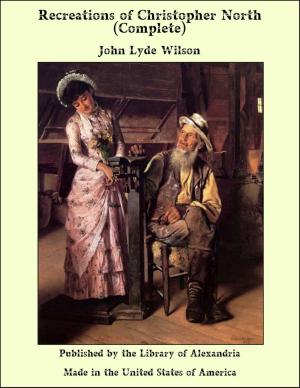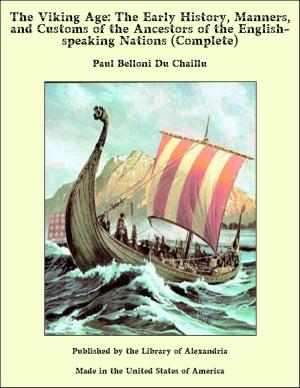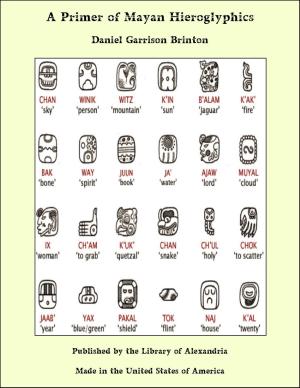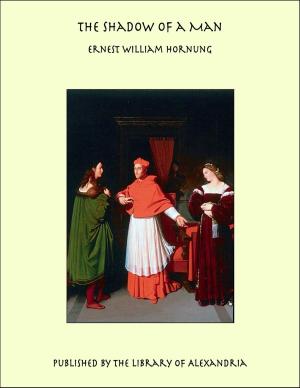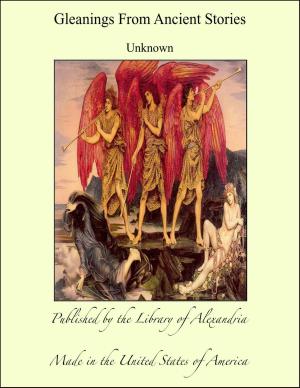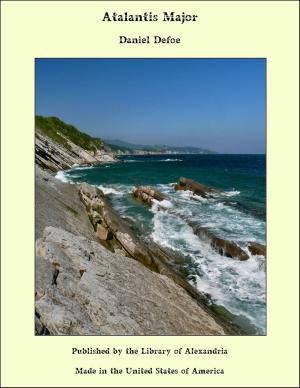History of the Pirates Who Infested the China Sea From 1807 to 1810
Nonfiction, Religion & Spirituality, New Age, History, Fiction & Literature| Author: | Various Authors | ISBN: | 9781465599162 |
| Publisher: | Library of Alexandria | Publication: | March 8, 2015 |
| Imprint: | Language: | English |
| Author: | Various Authors |
| ISBN: | 9781465599162 |
| Publisher: | Library of Alexandria |
| Publication: | March 8, 2015 |
| Imprint: | |
| Language: | English |
There have been pirates from the oldest times in the eastern sea of Canton; they arose and disappeared alternately, but never were they so formidable as in the years of Këa king, at which time, being closely united together, it was indeed very difficult to destroy them. Their origin must be sought for in Annam. In the year fifty-six of Këen lung (1792), a certain Kwang ping yuen, joined by his two brothers, Kwang e and Kwang kwŏ, took Annam by force, and expelled its legitimate king Wei ke le. Le retired into the province Kwang se, and was made a general by our government. But his younger brother Fuh ying came in the sixth year of Këa king (1802) with an army from Siam and Laos, and killed Kwang ping in a great battle. The son of the usurper, called King shing, went on board a ship with the minister Yew kin meih, and Meih joined the pirates, Ching tsih, Tung hae pa, and others, who rambled about these seas at this time. The pirate Ching tsih was appointed a king's officer, under the name ofmaster of the stables. King shing, relying on the force of his new allies, which consisted of about two hundred vessels, manned with a resolute and warlike people, returned in the twelfth moon of the same year (1803) into that country with an armed force, and joined by Ching tsih, at night time took possession of the bay of Annam. The legitimate king Fuh ying collected an army, but being beaten repeatedly, he tried in vain to retire to Laos. Ching tsih being a man who had lived all his life on the water, behaved himself, as soon as he got possession of the bay of Annam, in a tyrannical way to the inhabitants; he took what he liked, and, to say it in one word, his will alone was law. His followers conducted themselves in the same manner; trusting to their power and strength, they were cruel and violent against the people; they divided the whole population among themselves, and took their wives and daughters by force. The inhabitants felt very much annoyed at this behaviour, and attached themselves more strongly to Fuh ying. They fixed a day on which some of the king's officers should make an attack on the sea-side, while the king himself with his general was to fight the van of the enemy, the people to rise en masse, and to run to arms, in order that they should be overwhelming by their numbers. Fuh ying was delighted at these tidings, and on the appointed day a great battle was fought, in which Ching tsih not being able to superintend all from the rear-guard to the van, and the people pressing besides very hard towards the centre, he was totally vanquished and his army destroyed.
There have been pirates from the oldest times in the eastern sea of Canton; they arose and disappeared alternately, but never were they so formidable as in the years of Këa king, at which time, being closely united together, it was indeed very difficult to destroy them. Their origin must be sought for in Annam. In the year fifty-six of Këen lung (1792), a certain Kwang ping yuen, joined by his two brothers, Kwang e and Kwang kwŏ, took Annam by force, and expelled its legitimate king Wei ke le. Le retired into the province Kwang se, and was made a general by our government. But his younger brother Fuh ying came in the sixth year of Këa king (1802) with an army from Siam and Laos, and killed Kwang ping in a great battle. The son of the usurper, called King shing, went on board a ship with the minister Yew kin meih, and Meih joined the pirates, Ching tsih, Tung hae pa, and others, who rambled about these seas at this time. The pirate Ching tsih was appointed a king's officer, under the name ofmaster of the stables. King shing, relying on the force of his new allies, which consisted of about two hundred vessels, manned with a resolute and warlike people, returned in the twelfth moon of the same year (1803) into that country with an armed force, and joined by Ching tsih, at night time took possession of the bay of Annam. The legitimate king Fuh ying collected an army, but being beaten repeatedly, he tried in vain to retire to Laos. Ching tsih being a man who had lived all his life on the water, behaved himself, as soon as he got possession of the bay of Annam, in a tyrannical way to the inhabitants; he took what he liked, and, to say it in one word, his will alone was law. His followers conducted themselves in the same manner; trusting to their power and strength, they were cruel and violent against the people; they divided the whole population among themselves, and took their wives and daughters by force. The inhabitants felt very much annoyed at this behaviour, and attached themselves more strongly to Fuh ying. They fixed a day on which some of the king's officers should make an attack on the sea-side, while the king himself with his general was to fight the van of the enemy, the people to rise en masse, and to run to arms, in order that they should be overwhelming by their numbers. Fuh ying was delighted at these tidings, and on the appointed day a great battle was fought, in which Ching tsih not being able to superintend all from the rear-guard to the van, and the people pressing besides very hard towards the centre, he was totally vanquished and his army destroyed.


